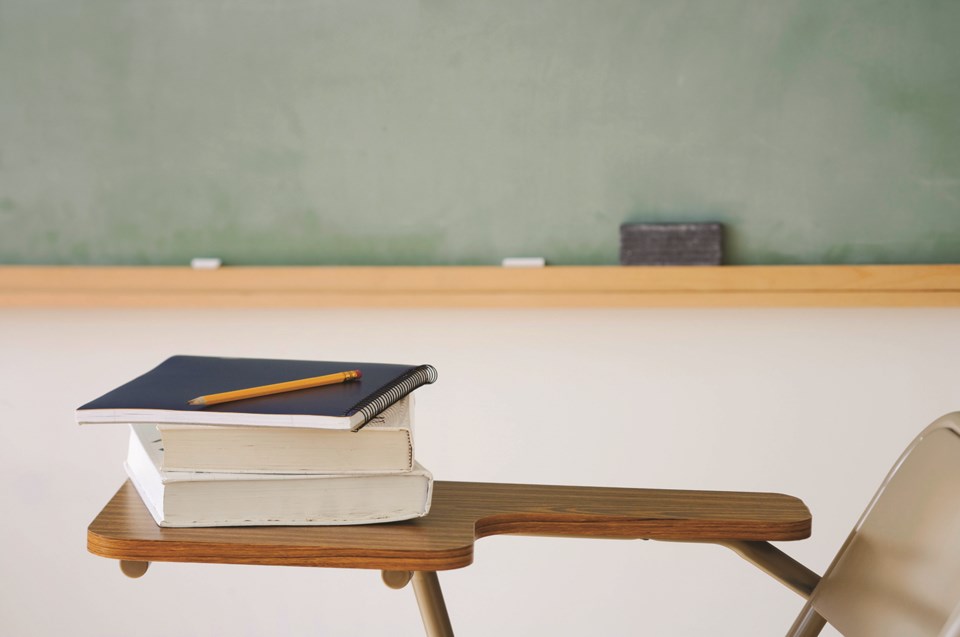ST. PAUL – The Fraser Institute released its latest rankings of elementary schools in Alberta, which the institute says gives parents insights into the academic performance of schools across the province, including those in the St. Paul region.
The metrics used by the Institute for its “school rankings” indicate that they are solely based on PATs (Provincial Achievement Tests). No other metrics have been specified.
The rankings are based on metrics that include average provincial test marks on subjects like language arts, math, science, and social studies; the difference on test performances between boys and girls; the rate of failure in provincial tests; and “the total number of tests that could have been written by students at the school but which, for whatever reason, were not written.”
According to the rankings, Elk Point School performed relatively well, maintaining a stable performance compared to previous years.
Two Hills School shows a more moderate outcome but remains competitive within the region with a score of 5.1.
Glen Avon School saw a decline, dropping to a score of 3.5 from 4.5 in 2022. The data provided in the report suggests that a higher number of students are struggling with provincial exams.
Ashmont School received a score of zero in this year’s rankings. Not all local elementary schools are included in the report due to a variety of reasons.
Over the past few years, many people have questioned the institute’s metrics used to compare elementary schools, with some calling it misleading and non-objective.
In 2018, for example, the BC Teachers’ Federation called the rankings clickbait and stated they serve no academic or social purpose.
On Sept. 4, the Fraser Institute said in a press release that “contrary to common misconceptions,” its data “suggests every school can improve regardless of type, location, and student characteristics,” noting examples like Banff Elementary School, which rose to a rating of 9 in 2023 from 6.1 in 2019.
“It doesn’t matter where a school is ranked, or what challenges its students may face. The evidence is clear - all types of schools, located all over the province with different types of students, are all capable of improvement,” said Peter Cowley, a senior fellow at the Fraser Institute.
Lakeland This Week reached out to the Fraser Institute regarding the data compilation methodology and if a score of zero is indicative of poor performance, or a reflection of other issues like incomplete data. The Institute was unable to respond before Lakeland This Week’s press deadline.
Flawed report
Peter Barron, superintendent at St. Paul Education, said the school division does not generally comment on the Fraser Institute’s rankings.
“While we acknowledge their interest in education, the methodology they use does not take into account the unique challenges and strengths of individual schools,” he said.
The rankings do not account for factors like socio-economic conditions, student diversity, “and local context are often overlooked,” added Barron. “Our focus remains on a more comprehensive approach to student success, which includes academic achievement, social and emotional development, and overall well-being.”
Jason Schilling, president of the Alberta Teachers Association (ATA), shared a similar sentiment. In a statement to Lakeland This Week, he said Fraser Institute’s Rankings presents a misleading view.
“Merely ranking a school on the results of a provincial achievement test does not account for the contextual make-up of the school. It does not account for the learning needs of a child nor the entirety of curriculum that is taught by professionals,” said Schilling. Teachers assess students in various ways that would truly capture what students learned and know, he added.
“The Fraser Institute takes data from one test and then ranks schools without any understanding of what makes our schools special and unique. Ranking our schools undermines the work they do and how hard the staff work to meet the needs of their students. This is becoming more and more difficult as Alberta is the least funded jurisdiction in Canada.”
Funding
Earlier in the week as many students across the Lakeland returned to school, Schilling spoke about the expansion of its “Stop the Excuses” campaign, noting that Alberta is the richest province in the nation but spends the least on education per student.
He said this undermines the quality of education in the province, resulting in challenges such as overcrowded classrooms, among other issues.
“Teachers are facing conditions that are not fair or sustainable. We cannot expect them to do more with less again and again. Public education is in crisis. This chronic underfunding of public education will be the legacy of this Premier and government,” he said.
In late July, the provincial government announced an additional funding of $215 million to help school authorities help students. Schilling welcomed the funding and said he hopes the provincial government continues supporting students.
Barron said funding is always critical in education. Like other school divisions, he said St. Paul Education has felt the impact of limited resources. While the school division tries its best to efficiently allocate funds, additional support is required.
“Our educators are facing several challenges that impact student performance, including the ongoing need to manage reduced resources and declining student enrolment,” he said. Reduced resources led St. Paul to making some difficult decisions, like staff reductions, which also places more pressure on remaining staff.
He said St. Paul Education continues to find and implement strategies to address these challenges, to ensure students continue to have access to high-quality education.



